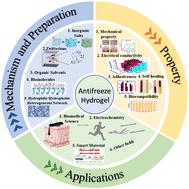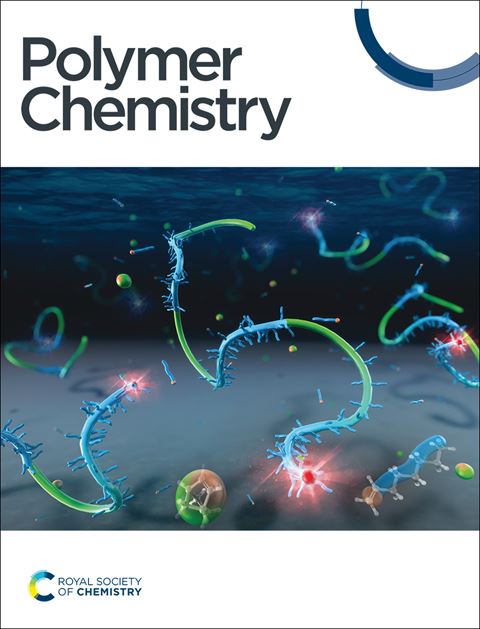多功能防冻水凝胶的合成策略及应用
IF 3.9
2区 化学
Q2 POLYMER SCIENCE
引用次数: 0
摘要
水凝胶以其优异的机械性能、优越的膨胀能力、优异的生物相容性和显著的离子电导率而闻名,在包括生物医药、食品工业和柔性电子产品在内的各个领域都显示出巨大的潜力。然而,传统的水凝胶在寒冷环境中面临着一个显著的限制:这些材料内部的水在低温下往往会冻结。这种冻结过程不仅损害了水凝胶的结构完整性,而且大大降低了它们的性能,严重限制了它们在寒冷环境中的应用。因此,开发防冻水凝胶已成为一个重要的研究领域。这些先进的水凝胶被设计成有效地抑制冰晶的形成和生长,使它们即使在低温条件下也能保持最佳性能。本文全面深入地综述了目前防冻水凝胶的研究进展,并对其防冻机理和合成策略进行了细致的分析。此外,我们系统地讨论了防冻水凝胶的独特性能及其在各个领域的具体应用。最后,我们提出了抗冻水凝胶目前面临的挑战和未来发展方向的见解。本文章由计算机程序翻译,如有差异,请以英文原文为准。

Synthesis strategy and application of multifunctional antifreeze hydrogels
Hydrogels, renowned for their exceptional mechanical properties, superior swelling capacity, excellent biocompatibility, and notable ionic conductivity, have demonstrated significant potential across diverse fields, including biomedicine, the food industry, and flexible electronics. However, conventional hydrogels face a significant limitation in cold environments: the internal water within these materials tends to freeze at low temperatures. This freezing process not only compromises the structural integrity of the hydrogels but also drastically reduces their performance, severely limiting their utility in cold environments. As a result, the development of antifreeze hydrogels has become a critical area of research. These advanced hydrogels are designed to effectively inhibit the formation and growth of ice crystals, enabling them to maintain optimal performance even under low-temperature conditions. This article provides a comprehensive and in-depth review of the current research progress on antifreeze hydrogels, meticulously analyzing their antifreeze mechanisms and synthesis strategies. Furthermore, we systematically discuss the unique properties of antifreeze hydrogels and their specific applications across various fields. Finally, we present insights into the current challenges and future directions for the development of antifreeze hydrogels.
求助全文
通过发布文献求助,成功后即可免费获取论文全文。
去求助
来源期刊

Polymer Chemistry
POLYMER SCIENCE-
CiteScore
8.60
自引率
8.70%
发文量
535
审稿时长
1.7 months
期刊介绍:
Polymer Chemistry welcomes submissions in all areas of polymer science that have a strong focus on macromolecular chemistry. Manuscripts may cover a broad range of fields, yet no direct application focus is required.
 求助内容:
求助内容: 应助结果提醒方式:
应助结果提醒方式:


